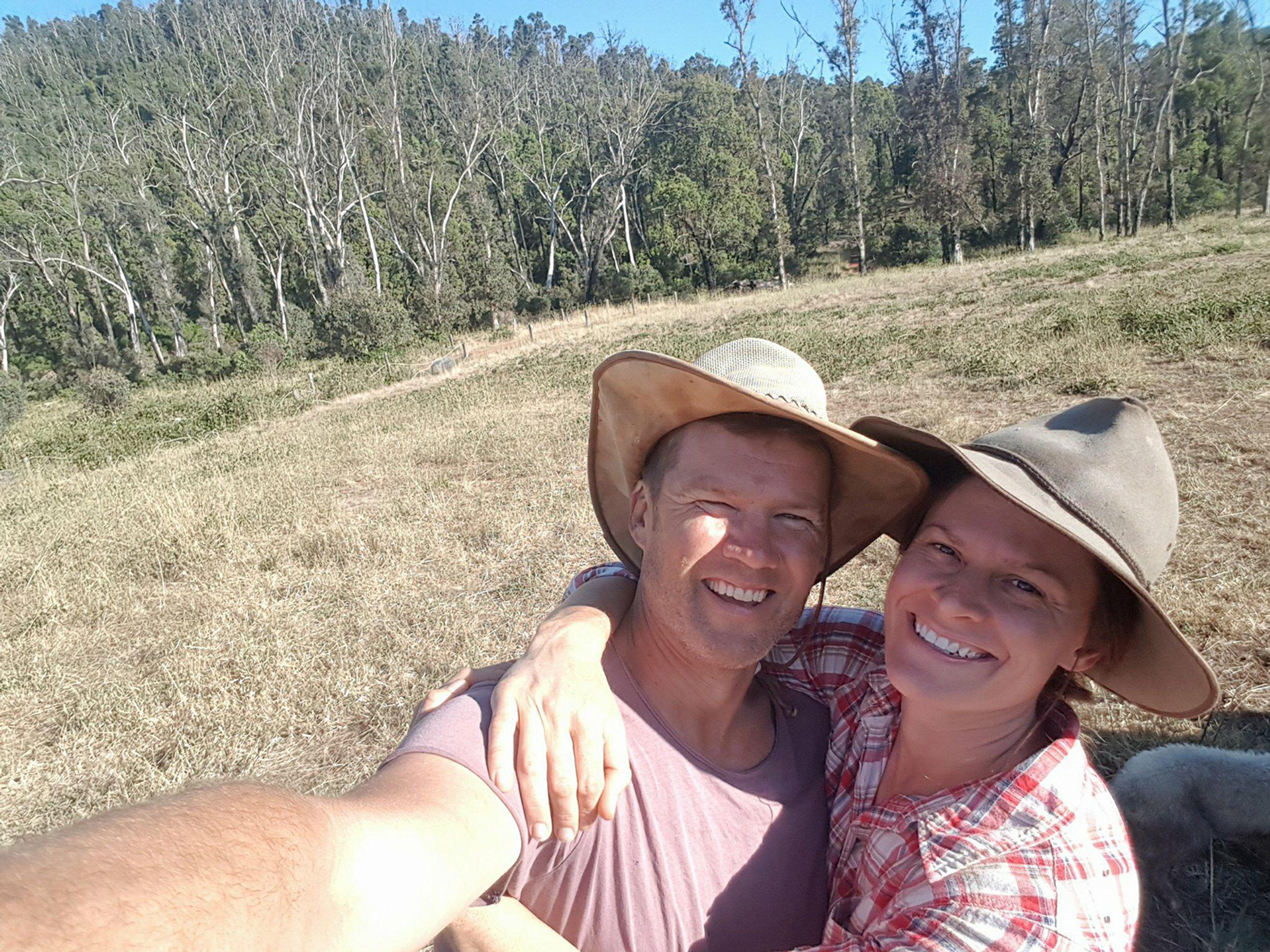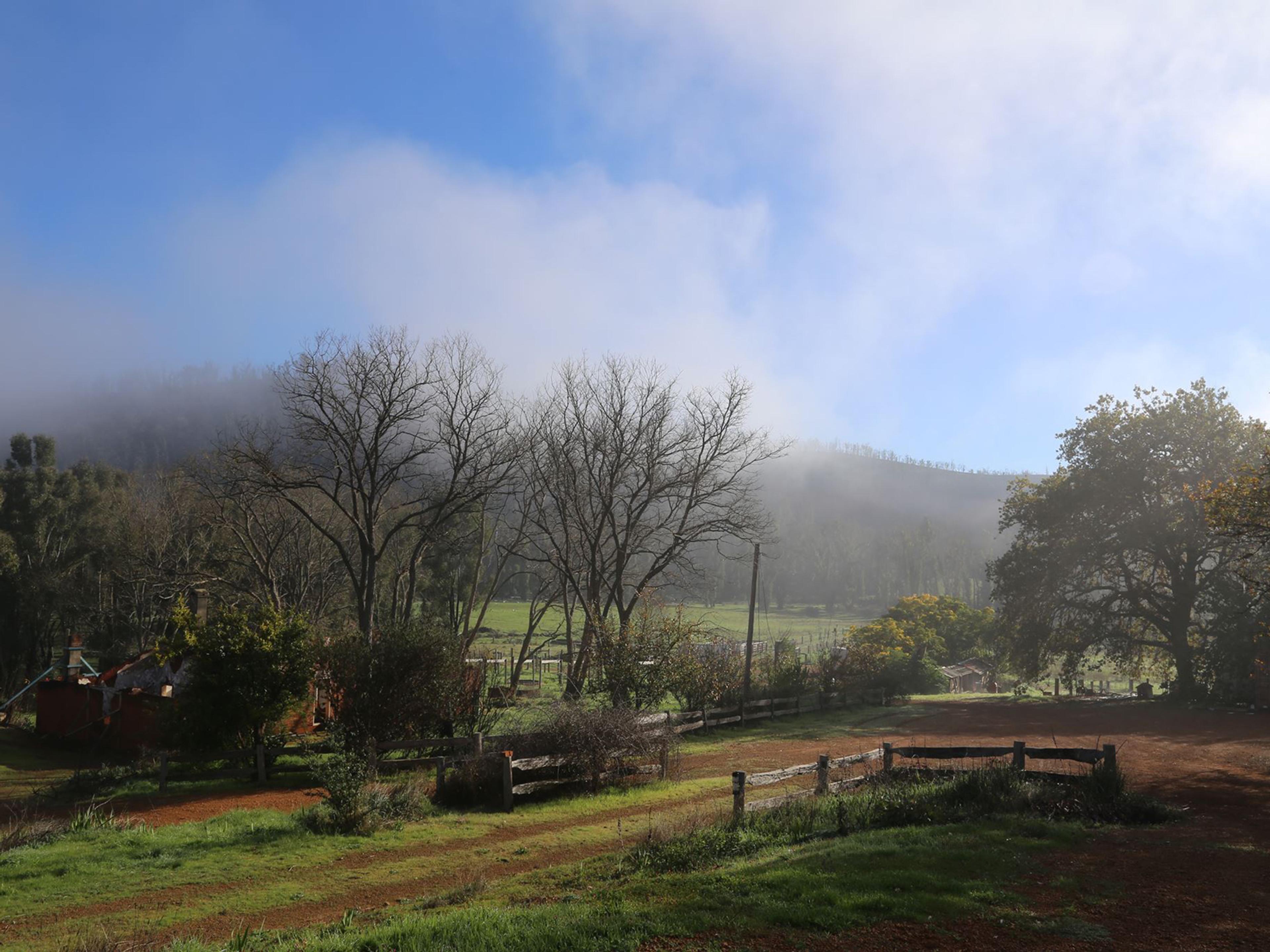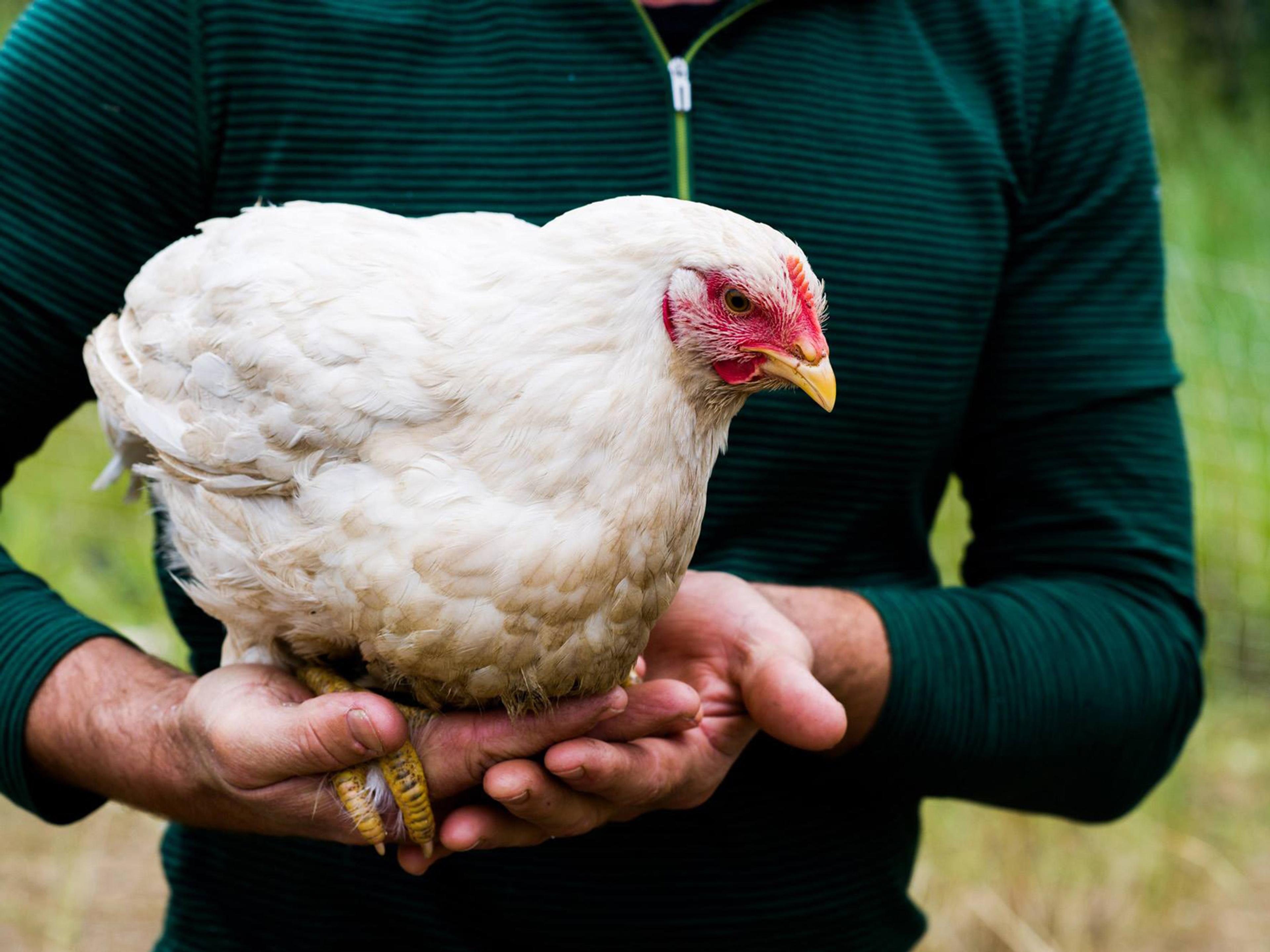Southampton Homestead – A Heart-Led Approach to Chicken Farming
Nestled on the idyllic banks of the Blackwood River in Western Australia, Southampton Homestead is a testament to resilience and a determination to do things differently. It hasn’t all been smooth sailing and like many regenerative farmers, Jeff Pow and Michelle McManus have faced a range of challenges, including a bushfire in 2013 that devastated their farm. What is most remarkable about their story, however, is their unwavering commitment to farming in a way that is deeply heart-led.
Nearly two decades ago, Jeff came to the realisation that industrial farming, particularly the treatment of animals raised for meat, was far from ideal. Troubled by the degrading and despicable conditions that are prevalent across most of the industry, he made a personal decision to only consume meat from animals that had experienced what Jeff terms, ‘a good life'. When he realised how difficult it was to source meat in this way, he started to look into what might be involved in farming chickens ethically. Inspired by the work of Joel Salatin, who advocates that chickens should have a great life and one bad day, Jeff began dreaming of a farming model where chickens were raised in a way that was better for the chickens, the people eating them and the land.
Michelle joined the farm in 2013 and the couple began looking into the practicalities of farming chickens ethically. They quickly discovered an important piece of the puzzle was missing – the infrastructure in the Southwest region of Western Australia wasn’t set up to support their localised, community-minded, ethical business model. In 1992, there had been 54 small, family-run abattoirs and processing facilities in the area; by 2004, these facilities had all but vanished. What remained was a void in the local food system and a handful of large commercial abattoirs that only accepted high volumes of animals from industrial farms. As a result, many small farmers had been forced out of the market over that decade, leading to the loss of not only crops and food production but also the intellectual and cultural capital that the community had once held.
Without a way to process the chickens in their care, Jeff and Michelle were at a loss for how to move forward. What happened next is the stuff of Hollywood movies – in a stroke of inexplicable luck, a poultry micro-abattoir appeared for sale on Gumtree. A fitter in Cairns had built it for his wife who had been raising pastured poultry and was selling it on. Jeff and Michelle travelled to Cairns, looked it over, stuck it on the back of their truck and headed home. It was a remarkable win for a farm that had seen its fair share of struggles.
While Southampton Homestead now had an abattoir, the couple faced a new challenge. When all of the smaller abattoirs had disappeared from the region, so too had the local knowledge of how to regulate them. As Jeff puts it, “They had no idea how to regulate a facility of our scale because there was no machinery involved. It was just people with their hands and a bunch of knives. Our industrial machinery was our aprons.” Undeterred, Michelle worked closely with local regulators, teaching and reteaching the ins and outs of their unique operation.
“They had no idea how to regulate a facility of our scale because there was no machinery involved. It was just people with their hands and a bunch of knives. Our industrial machinery was our aprons.”
Image credit: Chris Gurney
Fast forward to the present day and Southampton Homestead is a thriving example of regenerative farming. Central to all the work that they do is the premise that everything is interconnected. Chickens and ducks graze following a herd of cows as part of a rotational grazing system that mimics natural patterns. This process, known as Holistic Management, aims to build healthy soil and lush grasses without the use of chemicals or artificial inputs.
The birds enjoy a diverse diet consisting of insects, soil, perennial pasture and ample sunshine. To supplement their nutrition and support gut health, they are provided with a fermented feed that contains no antibiotics, hormones, soy, or canola. These practices ensure that the food produced is not only delicious but also naturally nutritious.
As Southampton Homestead has grown, Jeff and Michelle are sharing their knowledge and encouraging others to embrace ethical and regenerative farming practices. They are now supporting a collective of six family farms, providing them with chicks, access to markets, and invaluable insight. This collaborative approach has not only expanded the reach of ethical poultry farming in the region but also fostered a sense of community among the farmers.
Having reached capacity at their current facility, Southampton Homestead has now set its sights on duplication. Jeff and Michelle hope to establish poultry farms in other nearby areas, including Peel and the Great Southern regions. Over 1 billion chickens were consumed in Australia last year, with the vast majority of those chickens coming from intensive factory farms. Jeff and Michelle are keen to provide an alternative for consumers who seek nutrient-dense, ethically-produced food. By nurturing the land, cultivating regional economies, and embracing ethical practices, Southampton Homestead is creating a localised model that reconnects people with the food they eat.


